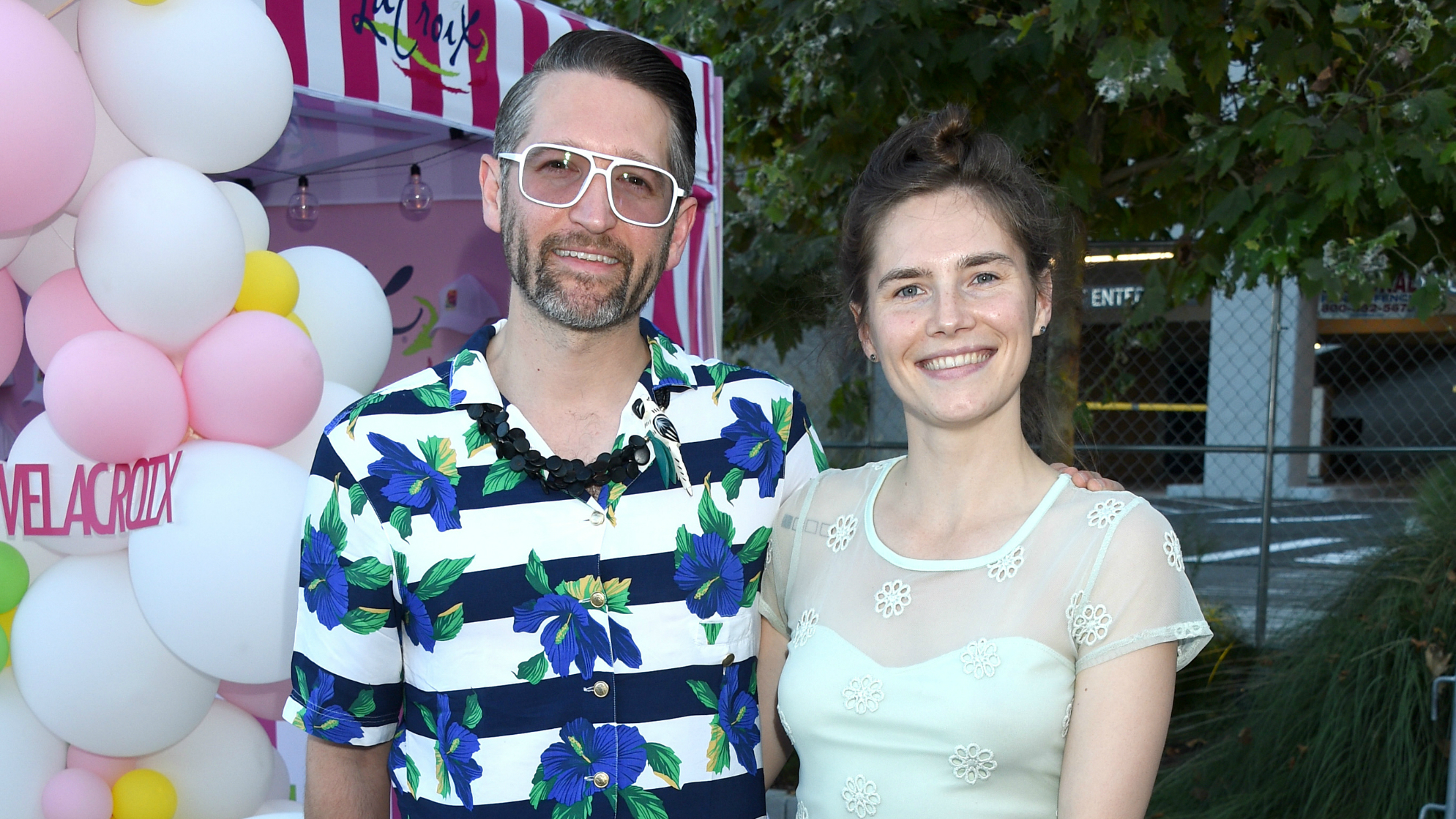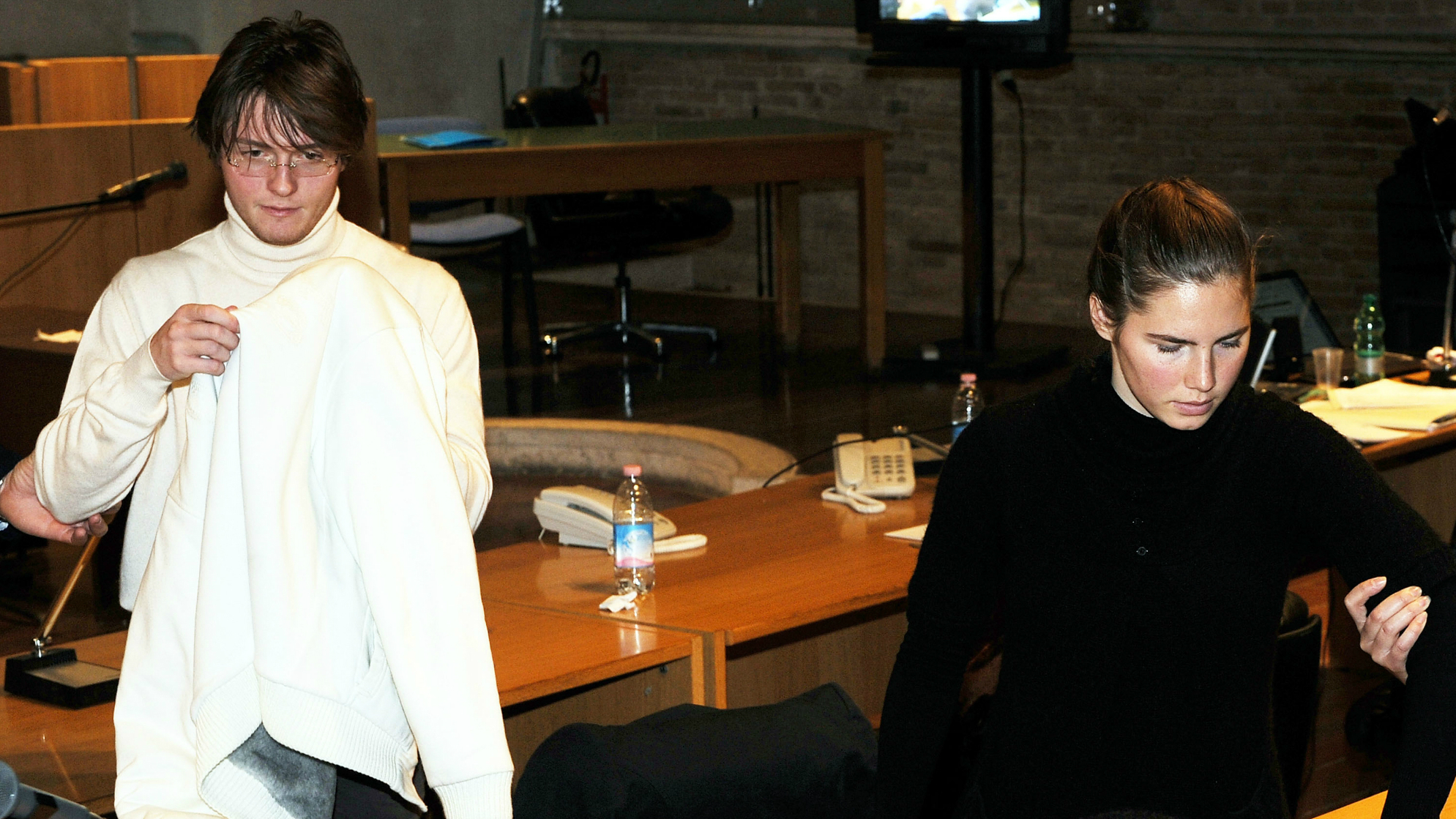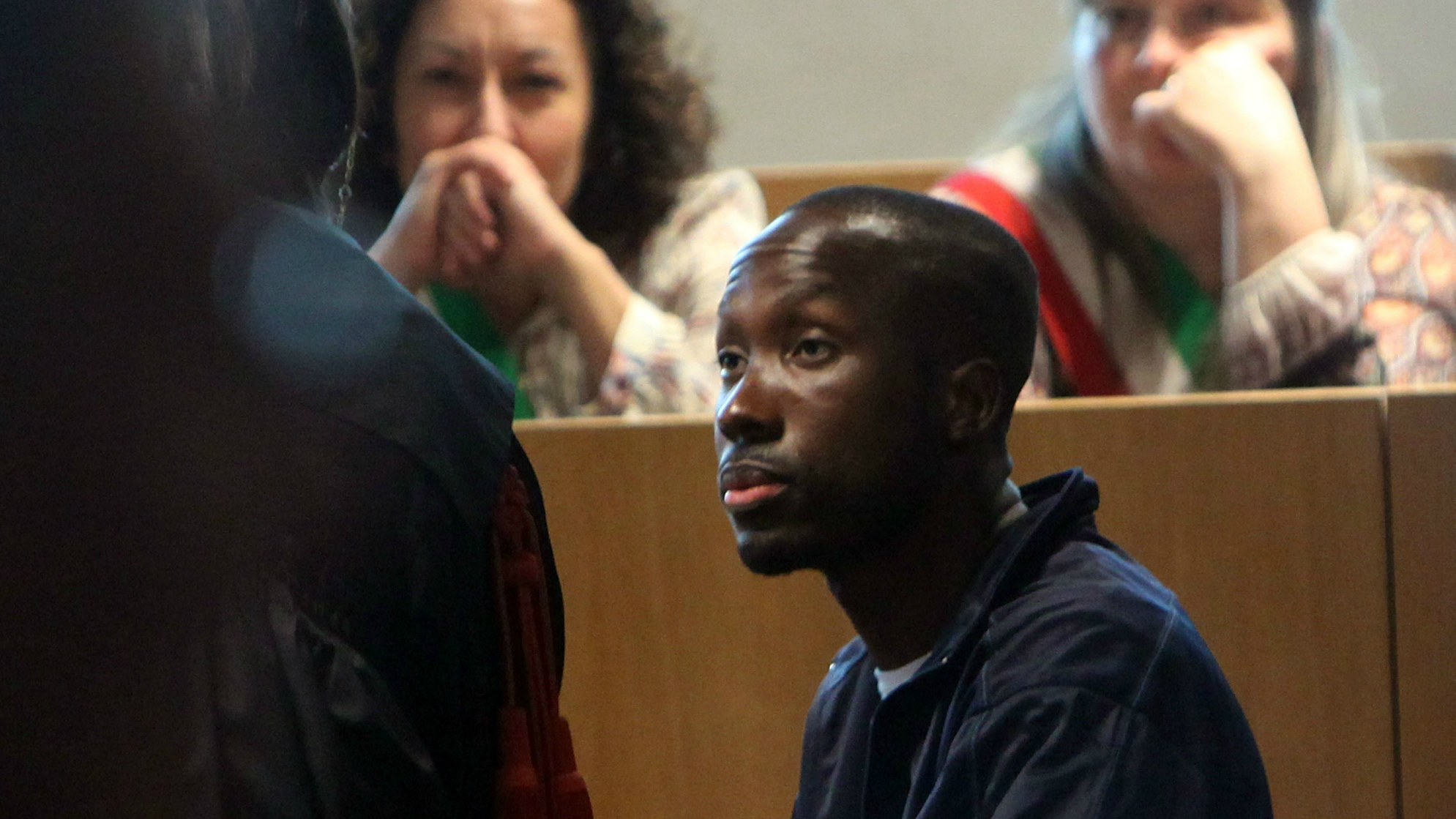12 years after Meredith Kercher’s murder: Amanda Knox takes on new job as agony aunt
It’s a murder case that still polarises across the world, so why is twice convicted and twice acquitted Knox writing an advice column and guest starring at a ‘Death Becomes Us’ true-crime festival

It’s a murder case that still polarises across the world, so why is twice convicted and twice acquitted Knox writing an advice column and guest starring at a ‘Death Becomes Us’ true-crime festival
Words by Michelle Davies
Amanda Knox’s new job as a newspaper agony aunt was announced just days before the 12thanniversary of Meredith Kercher’s murder – but it’s not the only surprising new career path she’s taken.
In a fanfare statement that was later removed from its website, Knox’s local paper, the Westside Seattle, revealed her new ‘Ask Amanda’ column will see her answer readers’ problems on ‘life, love, suffering and meaning’. The paper cited her ‘unique perspective on life’ as her qualification, after she served four years in an Italian jail before being exonerated of Kercher’s murder.
The newspaper is owned by the family of Knox’s husband, author Chris Robinson, who she married last year. She was expected to quietly observed the anniversary itself at home with Robinson in Seattle, but next Sunday she is due to resurface at a true crime festival in America called ‘Death Becomes Us’ – in her other new guise as an advocate for the wrongly imprisoned.

The 32-year-old is appearing at the festival in Washington DC to record a version of her The Truth About True Crime podcast in front of a live audience. She began the podcast last year to help people who have been convicted for crimes they didn’t commit – just as she was (twice) for Kercher’s murder in Italy in 2007.
‘Looking at the stories of people who have been similarly flattened and dehumanised [by being falsely accused] has given me perspective on my own experience,’ she said of her new campaigning role. ‘I am all too aware of how lucky I am to have received such strong support. I am also aware that countless other wrongfully convicted people do not have such support. I will work to give a voice to those individuals.’
Celebrity news, beauty, fashion advice, and fascinating features, delivered straight to your inbox!
Knox has spent the past four years since Italy’s Supreme Court quashed her conviction rehabilitating the ‘Foxy Knoxy’ image of her as a cold, calculating killer. Now a journalist in Seattle – she met her husband when she covered his book launch in 2016 – she regularly posts goofy pictures of them and their cats on Instagram.
She was 20 when Kercher’s body was discovered in the bedroom of their shared apartment in Perugia, Italy, on 1 November 2007. The British student had been stabbed and raped and her body partially covered with a blanket. From day one, despite a slew of physical evidence proving otherwise, Italian prosecutors clung to the narrative that Knox had coerced Rafaello Sollecito, her boyfriend of only five days, and Rudy Guede, a man she’d met only briefly through friends, into killing Kercher during a sex game that went wrong. The media seized upon the police’s version of events and painted Knox as a femme fatale with murderous intent even before she’d been charged. Rolling Stone later described Knox’s trial as being the ‘dawn of the Fake News Era’.

Despite being exonerated, Knox fears there will always be some who think she got away with murder. Last month she confided to NBC Nightly News’ Lester Holt, ‘I worry that when I meet people, they will have a great conversation with me face to face and I’ll think that we had a human connection, but then they’ll walk away and go to their buddies and say, “Yeah, I talked to the killer Amanda Knox”.’
She admits her public appearances, where she comes across as upbeat and driven, might seem at odds with her harrowing experience as a wrongly convicted suspect in a globally reported murder case. ‘I don’t come across as someone who is wounded,’ she acknowledged in an interview in May last year. ‘One thing I learned through this process is when and where to put up a shield and not expose myself as a vulnerable person. That’s one of those prison tricks.’ Knox makes no apologies for trying to spin something good out of her notoriety by becoming a campaigner, adding, ‘I’m just trying to do the best with what life has given me.’
She had been living in Italy for only six weeks when Kercher, then 21, from Coulsdon, Surrey, was murdered. All criminal trials are essentially an examination of good versus bad, but the Kercher case pushed those tropes to another level. On the side of good was ‘Mez’, as her friends called her, beautiful, smart and popular, who apparently told her parents she was irritated by Knox not bothering to flush the toilet and for bringing strange men back to the apartment. Representing bad, if not evil, was Knox herself, the pretty but oddball Seattle native with an apparent predilection for kinky sex, whose childhood nickname ‘Foxy Knoxy’ was a gift for a rabid media.
No DNA from Knox was found in the room where the murder took place, despite the prosecution’s misogynistic insistence that a woman had to have been involved because a man wouldn’t possibly have thought to cover Kercher’s body with a blanket after killing her. In her 2016 self-titled Netflix documentary, Knox said in the end people were judging her guilt on how she appeared rather than the facts before them. ‘Why are you looking at my eyes?’ she would say to herself in frustration during the court proceedings. ‘They’re not objective evidence.’

Everything Knox did was seen as a sign of guilt, from hugging Sollecito for comfort outside the apartment as police searched inside for clues to daring to smile at her family in court. She was also demonised for attempting to shift the blame onto local bar owner Patrick Lumumba, who was held on remand for two weeks as a result of her false statement. Knox said she had been forced to name him under duress during her police interrogation and in January this year the European Court of Human Rights ordered Italy to pay her $20,000 in damages for failing to provide her with legal assistance during her initial questioning.
Together Knox and Sollecito, then 23, were tried twice for Kercher’s murder and twice had their convictions overturned on appeal, the final time in 2015 when Italy’s Supreme Court cited ‘stunning flaws’ in the police investigation as reason for their exoneration. By then they had spent four years behind bars.
The third defendant, Guede, then 21, was convicted in a fast-track closed hearing in 2008. A burglar known to police, he was jailed for 30 years, reduced to 16 on appeal, after his DNA was found inside and on Kercher’s body, and on her clothing and bedroom furnishings. He remains in prison but is now allowed out on day release.
Knox’s decision to remain in the spotlight as a campaigner for justice has been difficult for the Kercher family. When she returned to Italy in June this year to take part in a debate entitled ‘Trial by Media’ at the Criminal Justice festival in Modena – organised by Italy’s The Innocence Project – their lawyer, Francesco Maresca, described her participation as ‘inappropriate’. ‘All these insistences and appearances are only ever done to keep the attention on herself,’ he said. ‘It’s also an injustice for [the Kerchers] as they still don’t know the full truth.’

Earlier this year a Kercher family member also commented to The Daily Beast. ‘One has to wonder why she is doing this, why we have to go through all this again. You don’t get used to the notion that your daughter’s killer has become a superstar any more than you get used to the fact that your daughter was murdered in the first place.’
The timing of the announcement about Knox becoming an agony aunt won’t have helped. In previous years Kercher’s family and friends have gathered at the south London cemetery where she is buried to mark the anniversary of her passing and her sister Stephanie also said they like to remember her on her birthday in December. This year she would’ve turned 34.
John Kercher's memoir, Meredith: Our daughter's murder, and the heartbreaking quest for the truth is available on Amazon
The leading destination for fashion, beauty, shopping and finger-on-the-pulse views on the latest issues. Marie Claire's travel content helps you delight in discovering new destinations around the globe, offering a unique – and sometimes unchartered – travel experience. From new hotel openings to the destinations tipped to take over our travel calendars, this iconic name has it covered.